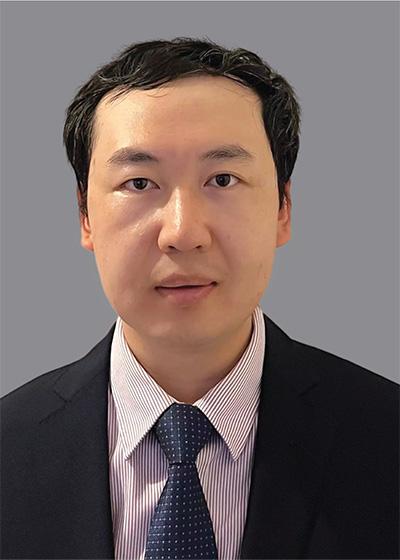Dr. Zhou received his B.S. from Tsinghua University with a major in Chemistry and a minor in Computer Science, followed by M.S. studies at Tsinghua University. He then went to Harvard University to purse his Ph.D. in Chemical Physics (2019), where he worked on mesh electronics for brain-machine interface. Then he joined MIT in 2020 for his postdoc research, where he worked on conducting polymer hydrogel, addictive manufacturing, and bioelectronic medicine. He joined Penn State University as an assistant professor in Fall 2022. His work has been published in top-tie peer-reviewed journals Science, PNAS, Nature Materials, Nature Methods, Nature Nanotechnology, Nano Letters, Advanced Materials, Angewandte Chemie, etc. He is a recipient of numerous awards, including Distinguished Graduates of Beijing (2013), Harvard CBI Simmons Awards (2015), MRS Best Oral Presentation Award (2020), and he has been named a semi-finalist in 2022 TR35 Global List. He has been invited to serve as conference session chair, reviewer for numerous leading scientific journals and fellowships. His research lab work at the intersection of materials science, neuroengineering, electronics, and bioengineering, with an overall goal of studying/manipulating the nervous systems and improving human health.
Novel materials and fabrication method for bioelectronic interface; Tissue-like macroporous bioelectronics for chronically stable and seamless brain-machine interface; Novel brain probes for chronic recording of the brain at single-neuron level; Novel bioelectronics for spinal cord neuron recording and stimulation in vivo with reduced invasiveness.
- C. Wang, X. Chen, L. Wang, M. Makihata, H. Liu, T. Zhou and X. Zhao, "Bioadhesive Ultrasound for Long-term Continuous Imaging of Diverse Organs." Science 377, (2022): 517-523.
- R.D. Viveros#, T. Zhou#, G. Hong, T.-M. Fu, H.Y.G. Lin and C.M. Lieber, "Advanced one- and two-dimensional mesh designs for injectable electronics." Nano Letters 19, (2019): 4180−4187.
- X. Yang#, T. Zhou#, T. Zwang#, G. Hong, Y. Zhao, R. Viveros, T.-M. Fu, T. Gao, and C.M. Lieber, "Bioinspired neuron-like electronics." Nature Materials 18, (2019): 510–517.
- T.G. Schuhmann, T. Zhou, G. Hong, J.M. Lee, T.-M. Fu, H.-G. Park and C.M. Lieber, "Syringe-injectable mesh electronics for stable chronic rodent electrophysiology." Journal of Visualized Experiments 137, (2018): e58003.
- G. Hong, T.-M. Fu, M. Qian, R.D. Viveros, X. Yang, T. Zhou, J.M. Lee, H.-G. Park, J.R. Sanes and C.M. Lieber, "A method for single-neuron chronic recording from the retina in awake mice." Science 360, (2018): 1447-1451.
- T. Zhou, G. Hong, T. -M. Fu, X. Yang, T. G. Schuhmann, R. D. Viveros, and C. M. Lieber. "Syringe-injectable mesh electronics integrate seamlessly with minimal chronic immune response in the brain." PNAS 114, (2017): 5894-5899.
- T.-M. Fu#, G. Hong#, T. Zhou#, T. G. Schuhmann, R. D. Viveros, and C. M. Lieber. "Stable long-term chronic brain mapping at the single-neuron level." Nature Methods 13, (2016): 875–882.
- J. Liu, T.-M. Fu, Z. Cheng, G. Hong, T. Zhou, L. Jin, M. Duvvuri, Z. Jiang, P. Kruskal, C. Xie, Z. Suo, Y. Fang, and C. M. Lieber. "Syringe-injectable electronics." Nature Nanotechnology 10, (2015): 629-636.
- T. Zhou, Y. Wang, Y. Dong, C. Chen, D. Liu, and Z. Yang. "Tetrahedron DNA dendrimers and their encapsulation of gold nanoparticles." Bioorganic & Medicinal Chemistry 22, (2014): 4391-4394.
- T. Zhou#, P. Chen#, L. Niu, J. Jin, D. Liang, Z. Li, Z. Yang, and D. Liu. "pH-Responsive Size-Tunable Self-Assembled DNA Dendrimers." Angewandte Chemie International Edition 124, (2012): 11433-11436.


